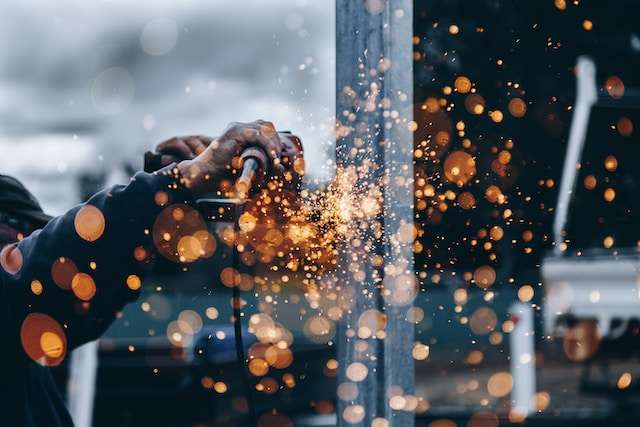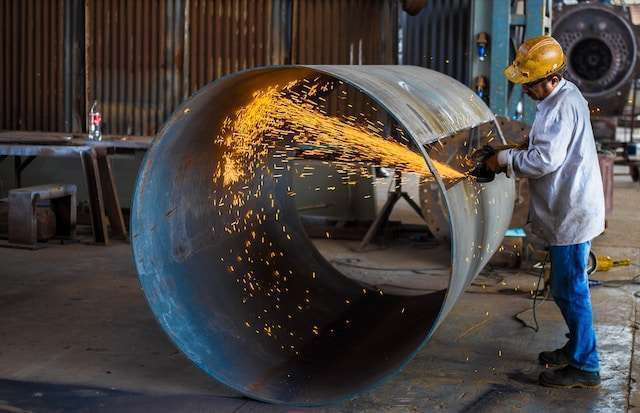A Glimpse of the Top Industries with Metal Fabrication
Metal fabrication is a dynamic and crucial sector that plays a pivotal role in various industries, shaping the backbone of modern infrastructure. As you navigate through the intricate web of metalworking, it’s essential to recognize the top industries where metal fabrication takes center stage. So, read on to take a closer look at the significant sectors harnessing the power of metal fabrication to drive innovation, efficiency, and progress.
Automotive Excellence
When you rev your car’s engine or appreciate its sleek design, you’re witnessing the result of advanced metal fabrication techniques. The automotive industry leans on metal fabrication for manufacturing critical components like chassis, frames, and engine parts. It’s most prominent in the fabrication of semi-truck parts for extensive fleets in the logistics industry. From traditional steel to lightweight alloys, the versatility of metal fabrication ensures that vehicles are not just modes of transportation but feats of engineering.
Aerospace Industry
In the aerospace industry, precision is non-negotiable. Every component, from engine parts to fuselage structures, demands meticulous attention to detail. Metal fabrication processes such as CNC machining and sheet metal forming are instrumental in crafting lightweight yet robust components. As you gaze into the sky, know that the aircraft soaring above you is a testament to the precision and reliability offered by metal fabrication in the aerospace sector.
- CNC Machining for Engine Components: The aerospace industry relies on CNC machining for crafting intricate engine components with unparalleled precision. From turbine blades to critical internal parts, the high accuracy achieved through CNC machining ensures optimal performance, fuel efficiency, and safety in aircraft propulsion systems.
- Sheet Metal Forming for Fuselage Structures: The fuselage, a critical component of any aircraft, benefits from sheet metal forming techniques. This process involves shaping and molding metal sheets into aerodynamic and structurally sound forms. The lightweight yet sturdy nature of these fabricated structures contributes to the overall efficiency and aerodynamics of the aircraft.
- Composite Materials Integration: In addition to traditional metal fabrication, the aerospace industry increasingly incorporates composite materials for enhanced performance. Metal fabrication processes seamlessly integrate these composite materials into aircraft components, offering a balance of strength and weight savings critical for achieving high-performance standards in modern aviation.
Construction and Infrastructure
The construction and infrastructure domain relies heavily on metal fabrication to bring architectural visions to life. Structural steel fabrication, welding, and metal assembly are the driving forces behind skyscrapers, bridges, and other monumental structures. As urban landscapes continue to evolve, the role of metal fabrication in constructing resilient and aesthetically pleasing edifices becomes increasingly apparent.
Energy Sector
Whether it’s crafting components for renewable energy systems or maintaining traditional power plants, the precision and durability offered by metal fabrication are indispensable. As the world pivots towards sustainable energy solutions, metal fabrication continues to be at the forefront of innovation.
- Renewable Energy Systems: Metal fabrication is instrumental in the development of components for renewable energy solutions such as solar panels, wind turbines, and hydropower systems. Precision-cut metal parts are crucial for assembling these systems, ensuring optimal efficiency and longevity.
- Traditional Power Plants: Even in conventional power plants, metal fabrication plays a vital role. Boiler components, turbines, and piping systems rely on precision machining and welding to withstand high temperatures and pressures. The durability of these metal-fabricated components contributes to the overall reliability of traditional power generation.
- Grid Infrastructure: Metal fabrication extends its reach to the construction and maintenance of power transmission and distribution infrastructure. From utility poles to electrical substations, the robustness of metal-fabricated structures ensures the secure and efficient delivery of electricity across the grid.
Electronics and Technology
From the intricacies of smartphone components to the robust casings of industrial machinery, metal fabrication ensures the reliability and functionality of electronic devices. The precision cutting, welding, and shaping of metals contribute to the miniaturization and efficiency that characterize modern gadgets, showcasing the indispensable role of metal fabrication in the tech landscape.
- Smartphone Manufacturing: Metal fabrication is integral to the production of smartphones, shaping components like frames, casings, and internal structures. The precision achieved through metal cutting and shaping processes contributes to the sleek design and compactness of modern smartphones.
- Industrial Machinery: In the industrial sector, the fabrication of metal lathes is essential for crafting the casings and components of heavy machinery. Whether it’s manufacturing equipment for factories or large-scale industrial processes, metal fabrication ensures the structural integrity and longevity of these machines.
- Electronic Enclosures: Metal fabrication is pivotal in creating protective enclosures for electronic components. These enclosures shield sensitive electronics from environmental factors and electromagnetic interference, highlighting the importance of metal fabrication in maintaining the reliability of electronic devices across various industries.
Defense and Military Applications
Metal fabrication plays a critical role in the defense and military sectors, where precision and reliability are paramount. The manufacturing of armored vehicles, weaponry, and other defense systems relies heavily on advanced metal fabrication techniques.
The ability to withstand extreme conditions and maintain structural integrity is a testament to the expertise embedded in every weld and cut. In safeguarding nations, metal fabrication becomes a strategic asset, ensuring the strength and durability of defense infrastructure.
Medical Equipment Manufacturing
In the medical field, metal fabrication takes on a life-saving role by contributing to the manufacturing of intricate and precise medical equipment. From surgical instruments to diagnostic devices, the healthcare industry relies on the accuracy and sterility achieved through metal fabrication processes. The ability to customize materials and shapes ensures that medical tools meet the exacting standards necessary for procedures, underlining the importance of metal fabrication in advancing healthcare technologies.
Agricultural Machinery
Tractors, plows, and harvesting equipment undergo rigorous conditions, demanding durability and reliability. Metal fabrication techniques, such as laser cutting and welding, contribute to the creation of agricultural tools that enhance productivity and efficiency. As the agricultural sector continues to evolve to meet growing demands, metal fabrication remains a key player in supporting advancements that drive food production.
From the skies to the fields, from defense to healthcare, metal fabrication stands as a cornerstone, shaping the infrastructure and innovations that define our world. Its pivotal role in aerospace precision, construction prowess, automotive excellence, technological innovation, defense fortification, healthcare precision, and agricultural efficiency shows how metal fabrication is the silent force propelling progress across a myriad of sectors.






![Entrepreneurial Story of the Igwe Twins [Started as Office Cleaners]](https://thetotalentrepreneurs.com/wp-content/uploads/2016/09/Entrepreneurial-Story-of-the-Igwe-Twins-Started-as-Office-Cleaners-SpeedMeals-Mobile-Kitchen.png)